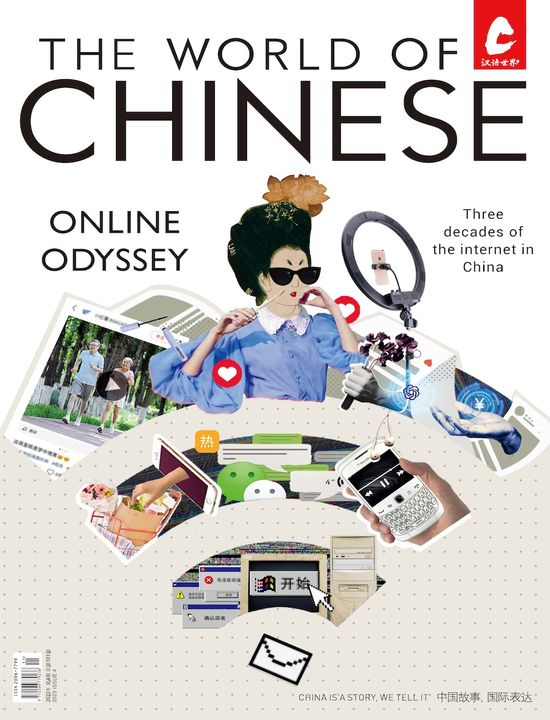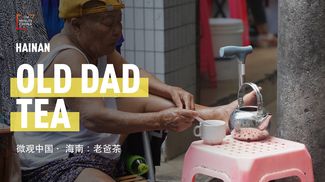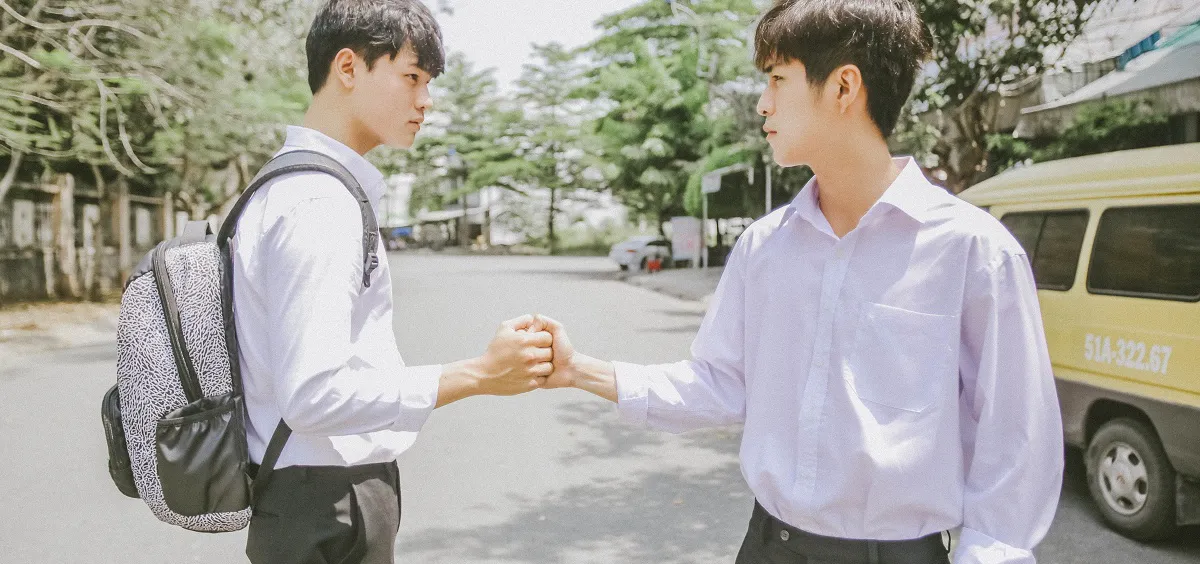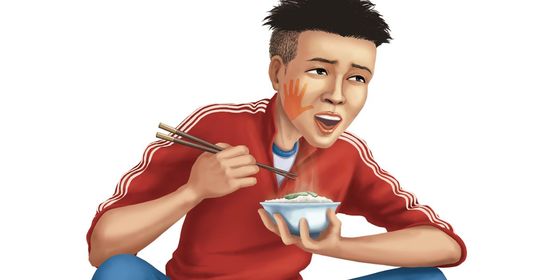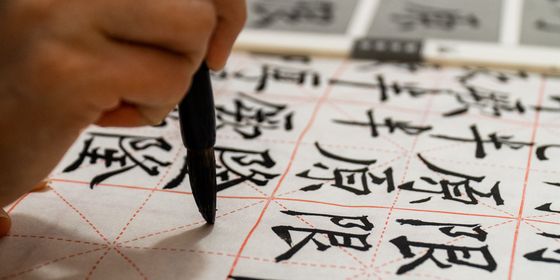A guide to internet slang for friendships, real and fake
Friendship is a lasting theme in human life and literature. However, the proper way to address one’s friends has evolved over time. Poetic co-dependencies like ancient China’s “eight-bow friends” probably still exist, but these terms are seldom used now.
Fortunately, the internet is always evolving new buzzwords to supplement our Chinese friendship vocabulary.
Old iron (老铁)
老铁(lǎotiě) is a term usually associated with northeastern China, meaning a trustworthy buddy or alternative to “brother.” It has gained popularity online due to the predominance of northeastern anchors in live streaming, and can be applied to friends of any gender.
It has been voted one of 2017’s top 10 internet slang:
My heart has been stabbed [my feelings have been badly hurt], my brother.
Zhā xīn le, lǎotiě.
扎心了老铁。
Gay friend (基友)
Stemmed from the English word “gay”, which sounds similar to “基” in Cantonese, the term 基友(jīyǒu, literally “gay friend”) has been broadened to refer to all best male friends, with just a hint of innuendo. Friendship between best male buddies is called 基情 (jīqíng, bromance), which is such a beautiful concept that TV and film audiences put as much effort into “shipping” male characters as they do heterosexual couples. While watching shows on a streaming platform, you may often see the following “bullet subtitles”.
A bromance has ignited between the leading males. Be together! Be together!
Nánzhǔ nánèr jīqíng sì shè, zài yìqǐ, zài yìqǐ.
男主男二基情四射,在一起,在一起。
Good gay friends are for life.
Hǎo jīyǒu, yí bèi zi.
好基友,一辈子。
Diehard friend (死党)
The origin of 死党 (sǐdǎng, literally “death members”) can trace back to a line in Volume 84, “Zhai Fangjin,” of the History of the Former Han (《汉书》), written in the first century. The reason for its revival is unclear, but in the original text, the expression referred to people that would try their utmost and even die for another person or a group. Nowadays, it means a good friend, but the use of it connotes one’s pride at having such a loyal comrade.
This is one of my diehard friends.
Zhè shì wǒ de sǐdǎng.
这是我的死党。
“Friend‘ship’ capsizes so easily” (友谊的小船,说翻就翻)
Though everyone cherishes sincere and loyal friends, some friendship simply go the opposite direction. This expression refers to a friendship that broke up over a trivial thing. The first half of the expression, 友谊的小船 (yǒuyì de xiǎo chuán, “little boat of friendship”), is said to have its origin in the English word “friendship” since “ship” is 船 (chuán) in Chinese. It was popularized by the 2016 Korean TV series Descendants of the Sun, and in everyday conversation, it’s used jokingly to tell someone how much they disappointed you:
You only Photoshopped yourself in our photo? Our friendship capsizes so easily.
Nǐ zěnme zhǐ gěi zìjǐ P le tú? Yǒuyì de xiǎo chuán shuō fān jiù fān.
你怎么只给自己P了图?友谊的小船说翻就翻。
Face brother (表面兄弟)
Contrary to a “gay friend” and “sworn friend”, 表面兄弟 (biǎomiàn xiōngdì) refers to a man who appears to be a good brother but would stab their “old iron” in the back. It first appeared in a comment written by League of Legends live-streaming anchor 五五开 to another anchor on the app Douyu. The gaming community, however, said it was more apt a description for 五五开 himself.
Don’t pretend to be a face brother, but employ internet shills to attack me behind my back.
Búyào hé wǒ biǎomiàn xiōngdì, ránhòu zài bèi hòu qǐng shuǐjūn gǎo wǒ.
不要和我表面兄弟,然后在背后请水军搞我。
Plastic sisterhood (塑料姐妹花)
In 2017, a Weibo post likened friendship between female best friends to plastic, which is fake but lasting, and created the term 塑料姐妹花 (sùliào jiěmèi huā, “plastic sisterhood”). There’s also a longer version, 塑料花姐妹情 (sùliào huā jiěmèi qíng, “plastic flower and friendship between women”). The phrase spread after the Singaporean twin-sister duo BY2 criticized each other in an interview, and is mostly applied to females, especially celebrities, who claim to be best friends but are unconvincing. People also use it to complain about their friends jokingly, using 塑料 as a synonym for the slang “假 (jiǎ, fake)”.
I’ve thought that the entertainment industry was full of plastic friends, until I saw Liu Yifei (刘亦菲) and Tang Yan (唐嫣).
Wǒ yǐwéi yúlè quān dōushì sùliào jiěmèi huā, zhídào kàn dào le Liú Yìfēi hé Táng Yān.
我以为娱乐圈都是“塑料姐妹花”,直到看到了刘亦菲和唐嫣。
You forgot my birthday? You must be a plastic friend.
Nǐ lián wǒ de shēngrì dōu wàng le, zhēnshi sùliào jiěmèi huā.
你连我的生日都忘了,真是塑料姐妹花。
